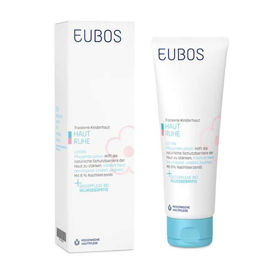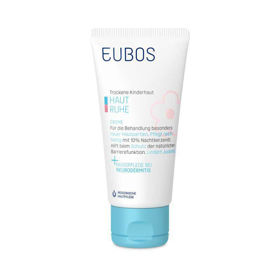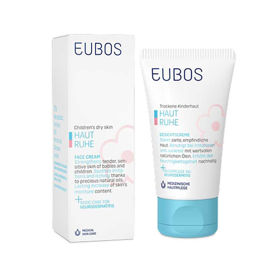Dry skin can present a problem that is uncomfortable or even stressful. Your skin is tight and sore and looks dehydrated, red or even scaly.

Dry skin is a very common occurrence. A growing problem for those affected are endogenous and factors caused by external influences that cause increased moisture loss in the skin. In particular, the atopic assessment shows an increasing trend. About 20% of the population shows an appropriate disposition.
Your intact, healthy skin is the primary protection against infections. If you leave your skin to dry out or even crack, you are susceptible to the intrusion of various bacteria, which can lead to more serious problems.
There are many good reasons to do something about your dry or even itchy skin, for health and well-being. So it’s time to find out what is really causing your dry skin.
For many, dry skin is not a sign of a skin problem or disease, but is simply the result of using too aggressive soaps, skin intolerant clothing materials, using the wrong lotions, and long, especially hot baths. Health conditions such as diabetes, psoriasis, hypothyroidism, and eating disorders can cause severe dry skin.
Understanding dry skin
Normal, healthy skin is coated with a thin layer of lipids or fats. These retain moisture, leaving the skin smooth and soft.
What causes dry skin? Usually environmental factors or non-proper skin care that destroys fatty oils so that your skin is left unprotected. Less often, the cause is conditioned by a medical condition or a genetic predisposition to predisposition to dry skin.
While dry skin can appear anywhere, it is most common on the hands, palms, lower legs and abdomen. Dry skin is felt rather than noticed, but for some people it can be noticeable and uncomfortable.
If care is neglected, dry skin can sometimes lead to dermatitis, that is, irritation or even inflammation of the skin. The good news is that most of the causes of dry skin are of external origin, which can mostly be solved by careful care and the establishment of a natural skin barrier.
If you’ve already struggled with the problem of dry skin, you’ve probably already tried skin moisturizers, if not hundreds. Although dry skin moisturizers are key to dry skin care, we don’t always use them the best.
Experts recommend applying moisturizing lotions immediately after showering, on slightly damp skin, which we only soaked with a towel after showering.
You also need to be careful when choosing the right moisturizing lotion. Experts recommend the use of products that do not contain perfume and alcohol, as well as products with an enriched structure and products that help establish a natural skin barrier - skin protection.
Dry skin and dry air
Dry air is probably the most common cause of dry skin, especially in the winter when it “draws moisture from the skin”.
While cold, uncomfortable weather dries out the skin, it is further dried by dry warm air from your stove or radiator. In summer, air conditioners have a similar effect. To prevent the effect of dry heat on the skin, be sure to use a moisturizing cream or lotion.
Other dry skin care tips include using a humidifier in your home.
A long hot bath and shower also dries out the skin.
Excessive exposure to water for too long, especially hot water, washes away the natural oils that protect the skin. If you feel discomfort or a slight tightening of the skin when you step out of the bathtub, you have definitely dried out your skin.
Experts recommend showering instead of a bath, with cold to lukewarm water. The water does not have to be cold, but it should be lukewarm and not hot. When shampooing or shaving, do not be exposed to a direct jet of water.
After showering, just soak with a towel and apply a moisturizer or lotion.
Loose skin, dry skin?
One of the major problems is drying out the skin with soap. The use of soap quickly washes away the natural skin's protective oils, which are usually used in such excessive amounts.
Hand wash and dry skin
While doctors and mothers warn us countless times about frequent hand washing, we also need to take care of our hands. Ironically, while striving to destroy bacteria, excessive hand washing can dry out the skin, causing cracks that allow bacteria to invade, increasing the chances of infection.
Many of us foolishly rush to drugstores and buy aggressive cleansers and worse, antibacterial soaps that create a lot of foam and give us a feeling of immeasurable purity while removing oils from the surface of the skin and drying it out.
For dry skin care, choose mild cleansers, preferably perfume-free, or cleansers and care products in one.
However, do not use harsh washing utensils. Amazing what abrasive aids we find for cleansing the skin. Sanding the skin is not a good idea as it removes a thin layer of natural oils that keep the skin moist and healthy.
Do not wear clothes that are made of materials that irritate your skin. Wear natural materials. Dry skin is particularly sensitive to irritants, which further exposes and dries the skin. Don’t make your clothes too tight as rubbing irritates the skin. If your skin is irritated, also use perfumes and dyes without detergents.
Drink lots of water!
The usual guideline is to drink eight glasses of water a day. 1 liter of water per 25 kg of body weight is recommended. If you exercise, you will probably drink more to make up for lost water through sweating. You can usually rely on your feeling of thirst to alert you when you need to drink. If you listen to your feeling of thirst and simply watch how many glasses of water you drink per day, you can supply your body with a sufficient amount of water.
Some medications can dry out your skin or dry out their skin's effect. Talk to your doctor.
Dry skin is associated with some health problems
Usually, dry skin is caused by external factors, but sometimes it can be a sign that something is going on inside, whether it is a natural physiological change or a disease.
For example, dry skin often occurs with age, especially in women. A change in hormone levels can cause dry skin. As many as 75% of people over the age of 65 have dry skin. Other people, regardless of age, are simply genetically predisposed to dry skin.
Dry skin can be the result of various disease states.
Some more common are skin conditions such as e.g. eczema and psoriasis, which usually need direct treatment, where careful use of moisturizers often helps.
Diabetes, where fluctuations in glucose can lead to dehydration, which dries out the skin. Given that diabetes slows healing and increases the risk of infections, it is especially important to keep the skin healthy.
Hypothyroidism, where thyroid hormone levels are low, which can reduce the amount of oil the skin produces, resulting in the skin becoming dry and rough. Hypothyroidism is usually accompanied by other symptoms such as fatigue and weight gain.
Eating disorders where the body does not get enough nutrients, causing dry skin.
Other illnesses, both minor and serious, can cause dry skin problems. Treating only these can solve the basic problem of dry skin, in other cases you may just follow some basic tips for caring for dry and sensitive skin. Talk to your doctor.
How to help yourself when dry skin itches?
While dry skin can be the result of serious medical conditions, the vast majority of the cause is only in the broken balance of the skin barrier, that is, the natural protection of the skin, no matter how uncomfortable the skin feels.
Many people insist on discomfort, when in fact skin care can be so easy.
So if you are unhappy about your skin and dry and sensitive skin care products do not provide you with comfort, it is time to talk to a dermatologist who can help you identify the causes and provide appropriate treatment. There is no reason for discomfort when so much comfort is available.
For the well-being of your skin, EUBOS among the team













